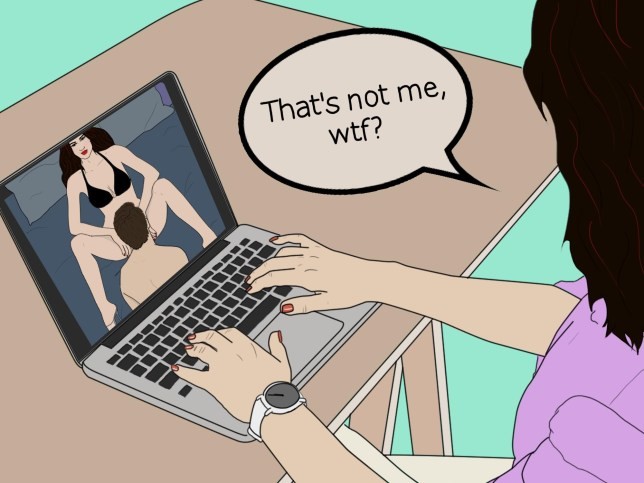DEEPFAKE PORN : Watch whatever your imagination desires.

Pornography online attracts millions of erotica-hungry people ready to see sex on-demand. You can simply ask your phone to show you anything you desire and there it is: any time, any place. With the advent of deepfake porn, the possibilities have expanded even further, with people who have never starred in adult films looking as though they’re doing sexual acts on camera. Experts have warned that these videos enable all sorts of bad things to happen, from paedophilia to fabricated revenge porn.
What are Deepfakes? Deepfakes are videos and images that use deep learning AI to forge something not actually there. This can be done to make a fake speech to misrepresent a politician’s views, or to create porn videos featuring people who did not star in them. They’re made in two ways. Using a generative adversarial network – or GAN. This is a type of AI that has two parts; one which creates the fake images, and one that works out how realistic it is, learning from its past mistakes Auto encoders are another way to create deepfakes. These are neural networks that can learn all the features of a given image then decode those features so they can change the image These methods vary in efficacy and quality, with GANs giving less blurry results but being trickier to train. Samsung recently created an AI that was able to make deepfake videos using single images, including the Mona Lisa and the Girl With A Pearl Earring. We saw these iconic paintings smiling, talking, and looking completely alive. In recent weeks, there has been an explosion of face swapping content, with Snapchat and FaceApp (among others) releasing realistic filters that allowed you to see your looks as the opposite gender, as well as previous ageing filters going viral once more.
For all the fun, however, is a darker side to using AI to create deepfakes. A number of celebrities have had their faces superimposed onto pornographic videos, with the likes of Selena Gomez, Emma Watson, Scarlett Johansson, and Jennie from girl group Blackpink falling victim. Deepfakes of Donald Trump and Barack Obama have been made and there are concerns that they could be used to undermine democracy as well as people’s personal privacy. DARPA in the US has spent millions on ‘media forensics’ to thwart these videos, working with academics across the world to detect what’s real and otherwise. ear, which she said left her throwing up and crying and was a method to ‘silence’ her. Scarlett Johansson stated in the Washington Post that, while the videos of her were ‘demeaning’, ‘this doesn’t affect [her] as much because people assume it’s not actually [her] in a porno’. Non-celebrities won’t have the same cachet and money to fight back. What would you do if a realistic-looking porn video of you was sent to your family or workplace? The extent that revenge porn already ruins lives is no secret, so when any act can be simulated to look as if you’re involved (and powers that be are unable to verify or disprove it), how do you protect your reputation? There is no way to fully protect against deepfakes being made against you. ‘If one has shared [any] photos then the risk is there,’ Prof Citron says but the technology at present means it’s difficult to make realistic videos of ‘normal’ people.
Reddit already banned the deepfake subreddit from their site but still have a safe for work forum available for people to share work that stays within the law. On other messageboard sites, it is not hard to find high quality fake videos of a number of people (including game characters). At present, although web giants like Reddit and Google are trying to control deepfake proliferation, the technology is moving faster than they ever can. While web users may enjoy swapping faces with their favourite singer or seeing Vladimir Putin do a dance in a deepfake video, the potential is much darker. When that becomes privacy breaches, blurred lines between reality and lies, and ruined reputations (which the likes of Rana Ayyub, or 24-year-old deepfake revenge porn victim Noelle Martin may argue it already has), it will be up to governments and tech companies to catch up with the fast-moving technology as quickly as they can.